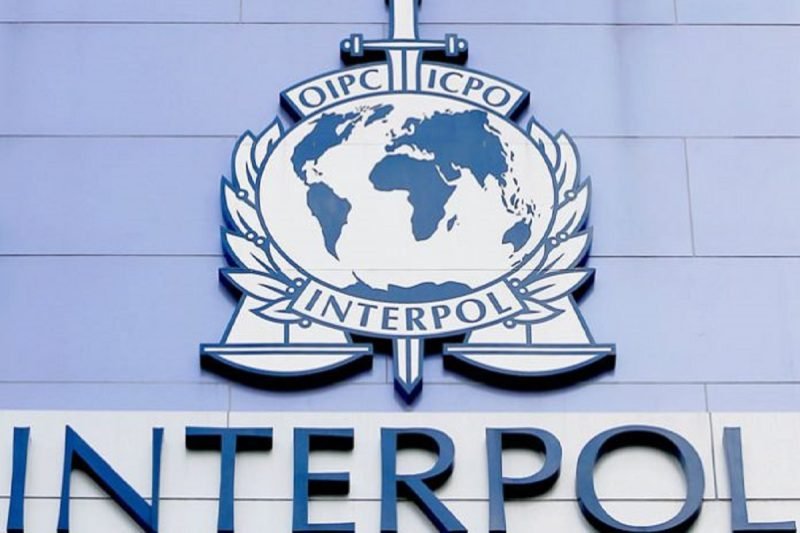A report by the Journalists and Writers Foundation (JWF), a New York-based international civil society organization, has shown through two cases that Turkish authorities gave false information to INTERPOL and member states by creating misleading detention and extradition requests, Turkish Minute reported.
The report focuses on the facts and analysis of the cases of Selahaddin Gülen, a teacher and nephew of Islamic scholar Fethullah Gülen who was forcibly returned from Kenya to Turkey in May; and Muaz Türkyılmaz, a Turkish businessman who spent several months in pre-extradition detention in Panama City after the seizure of his passport by Panamanian immigration authorities in September 2020.
Gülen and Türkyılmaz are among the dissidents abroad targeted by Turkey’s Justice and Development Party (AKP) government due to their alleged links to the Gülen movement, a faith-based group that President Recep Tayyip Erdoğan and his AKP designate as a terrorist organization and accuse of masterminding an attempted coup on July 15, 2016.
The movement, which focuses on science education, volunteerism, community involvement, social work and interfaith and intercultural dialogue and is inspired by the teachings of the US-based Muslim preacher Fethullah Gülen, strongly denies any involvement in the failed putsch or any terrorist activities.
Both cases refer to the AKP’s attempts to “intimidate dissidents abroad by issuing political red notices through Interpol, contrary to the spirit of the Interpol Constitution and applicable national and international law,” since the attempted coup in 2016, the report said, adding that while traveling abroad, thousands of Turkish citizens were detained due to Red Notices or passport cancellations, forcibly deported to Turkey or face the risk of being extradited to Turkey.
According to Interior Ministry data, 622,646 individuals were investigated for ties to the Gülen movement while 301,932 were detained by the end of February 2021, as part of the AKP’s domestic crackdown after the coup attempt.
The government also confirmed that it had been able to “abduct and illegally transfer to Turkey 139 victims from 33 countries” as part of its global purge since 2014, a statistic that makes Turkey the number one country carrying out renditions from other states, the JWF said.
According to the report, Selahaddin Gülen’s case is a prime example of political abuse of the INTERPOL system by Turkey since he was sought for alleged crimes on which he had already been tried and acquitted in 2018 after being detained at the airport in Nairobi on Oct. 17, 2020 based on a Red Notice alert issued by Ankara’s INTERPOL office.
“Following his abduction and his illegal transfer to Ankara, he was, however, investigated and prosecuted by the Turkish authorities on crimes against the constitutional order and terrorism. The first paragraph of the indictment against Selahaddin Gülen specifically refers to the fact that he is the nephew of Fethullah Gülen, which appears to be his only ‘crime’ throughout the indictment,” the JWF said.
The case of Türkyılmaz is another example of political abuse of the INTERPOL system by Turkey, JWF said, adding that although he was arrested on Sept. 14, 2020, in Panama City, while he was boarding a plane to the Netherlands, he was finally released by the court and able to reach a third country safely, following several months in pre-extradition detention.
“After analyzing the cases of Selahaddin Gülen and Muaz Türkyılmaz, baseless accusations against them, and the requests rejected by the Interpol General Secretariat and the government of Panama, it is obvious that the Turkish authorities have given false information to Interpol and Member States by creating misleading detention and extradition requests,” the report said.
The JWF further emphasized that Turkey’s disturbing human rights record, including the arbitrary detention, torture and enforced disappearance of dissidents, raises serious concerns that “if extradited or otherwise transferred to Turkey, individuals subject to Interpol red notices will risk torture, ill-treatment or even death.”
The report, which comes ahead of the 89th INTERPOL General Assembly, scheduled to be held in İstanbul November 23-25, aimed to remind the Turkish authorities to “conform its actions with Interpol’s Constitution and the set of principles protecting human rights.”
Taking into account the Turkish abuse of the INTERPOL system, the JWF also urged INTERPOL and all other member states to “adopt a more cautious approach in accordance with the spirit of the Universal Declaration of Human Rights when enforcing notices or diffusions originating from Turkey.”
According to a report by the Stockholm Center for Freedom, the Turkish government, under President Erdoğan, has used the International Notice System, such as Red Notices and diffusions, to target political opponents who have done nothing more than criticize the government.
Similarly, it has also abused INTERPOL’s Stolen and Lost Travel Documents Database by filing tens of thousands of notifications for critics and opponents who, in many instances, were not even aware that their passports had been invalidated.















